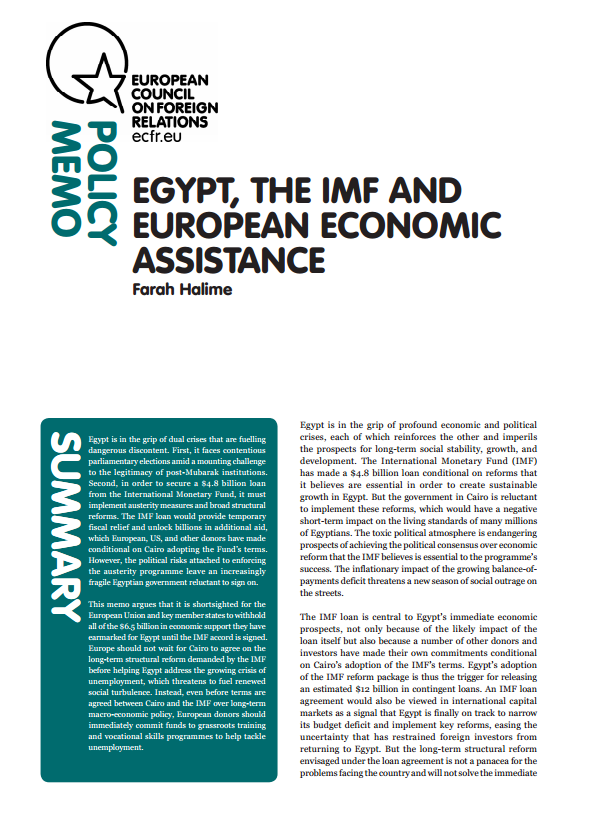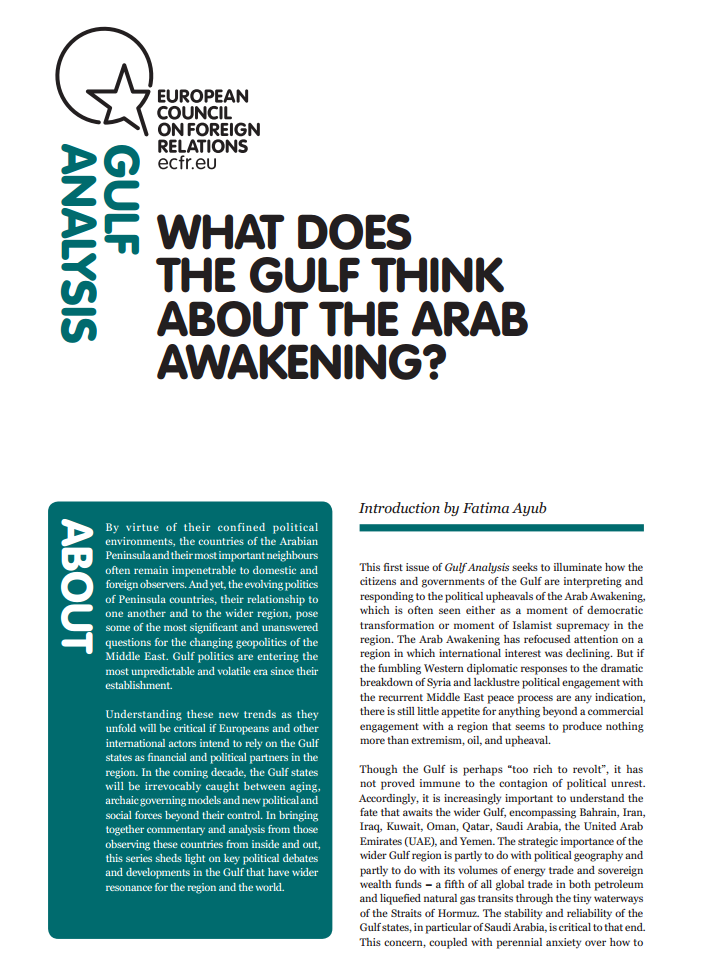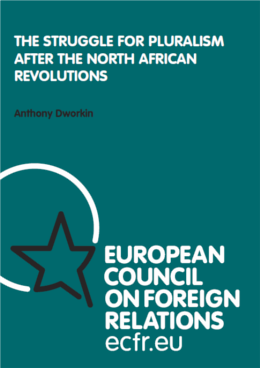
Egypt, the IMF, and European economic assistance
How Europe can help Egypt

How Europe can help Egypt

Understanding the influence of the Gulf States
An understanding of the importance of the Gulf States is vital for explaining how the wider Middle East functions, thanks to their wealth, their energy resources, their geostrategic position, and their straddling of many of the MENA region's major faultlines.

NIAC President Trita Parsi and Research Director Reza Marashi will present the findings of their report on Iranian sanctions together with an analysis of the dynamics at play in the negotiations between Iran and the P5+1

Following the screening of 'My Neighbourhood', a film which has just received a Peabody Award, co-director Julia Bach will answer questions from the audience

What next for Egypt, Tunisia and Libya?
The collapse of Lebanon’s government has thrust the country into a deepening political crisis. The war in Syria and recent actions by Hezbollah also suggest that internal conflict may return to Lebanon.